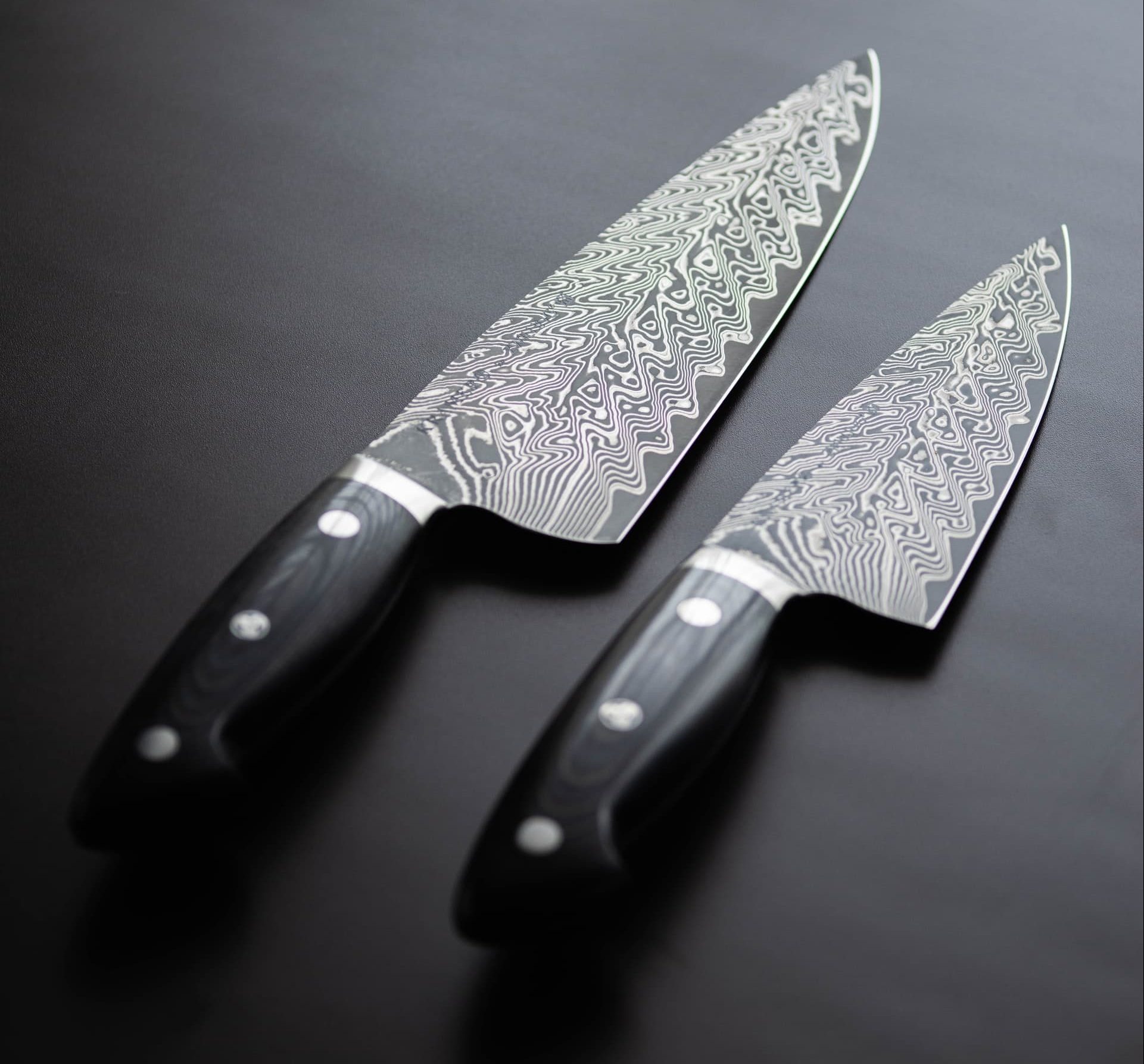Damascus knives have the best steel for kitchen knives. It is the best kitchen knife steel because it is forged initially for creating actual swords in the Near East. Metalworkers from Southern India initially created Damascus steel, and there were also centers of forging in Khorasan, Merv, and Sri Lanka. What makes this type of metal excellent is it has a ladder or flowing pattern on the surface. Damascus steel is known for being resistant to shattering and honed for the sharpest and most resilient edge known in the kitchen.
High carbon steel is known throughout the world and exists with different names. In the Arabic world, it is called Fulad. In Russia, Bulat. In India, it is called Wootz. And in China, Damascus steel is called Binnie. Genuine Damascus steel from the 1700s is called crucible steel. “Damascus guns” should not be confused with Damascus steel as these only attempted to replicate the flowing, rose patter found in most Damascus chef knives today.
Today’s modern Damascus knives are laminated steels that have a massive aesthetic value and are extremely durable. Damascus knives can be matched with German professional knives.
Wherever you go, Damascus knives are gaining a great reputation as a professional knife for both home kitchens and professional kitchens. Pick one or a set if you’re tired of working with cheap knives that dull within the year. If there ever were a self-sharpening blade, that would have to be the modern Damascus knife’s laminated excellence.
Keep in mind that various types of Damascus knives in the market, from those with simple hammered textures to high-density variants that are tougher and even harder to break.

